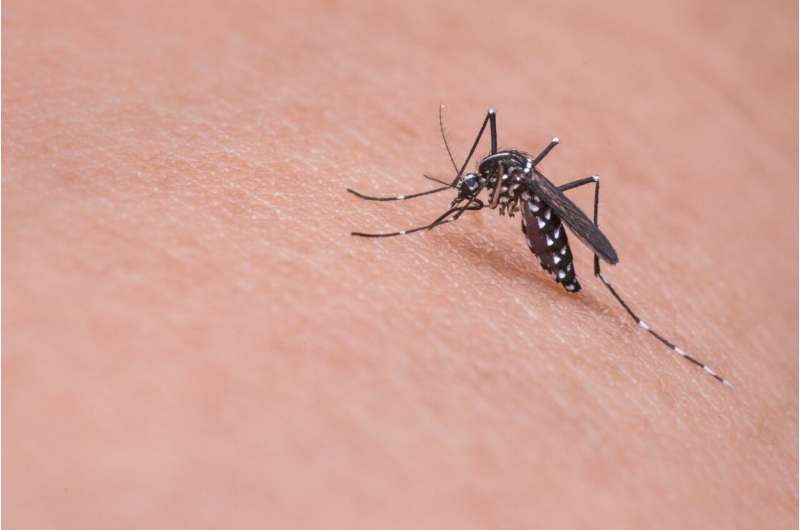This article has been reviewed according to Science X's editorial process and policies. Editors have highlighted the following attributes while ensuring the content's credibility:
fact-checked
trusted source
proofread
Blocking fertilization of parasite-causing malaria opens new doors in eradication efforts

More than 400 people develop malaria every minute, and it can be fatal if not diagnosed and treated at the first sign of symptoms. Eliminating the disease will require interventions that stop the transmission of the parasite from mosquitoes to humans.
Burnet Institute Senior Research Officer Dr. Fiona Angrisano says that one way to achieve this is by using drugs or vaccines that target the sexual stages of the Plasmodium parasites responsible for malaria transmission in the mosquito.
Dr. Angrisano, along with colleagues from Cambridge University, has found the protein disulfide isomerases trans (PDI-Trans) on the surface of sexual stage parasites is significant during the fertilization stage.
"Our research has shown male parasites at the sexual stage that have PDI-Trans removed cannot undergo fertilization and progress to the following life cycle stage of malarial infection within the mosquito," she says.
Bacitracin, an FDA-approved drug more commonly used against bacteria to stop skin infections, was found to effectively decrease malarial transmission by blocking PDI-Trans in the parasites—demonstrating the potential of repurposing drugs not initially intended for malaria.
Dr. Angrisano says the discovery opens new and exciting avenues in the fight against malaria.
"Ongoing work with Dr. Hayley Bullen aims to determine whether PDI activity is important for the Plasmodium parasite responsible for malaria in humans," she reports.
"We are continuing our research into the development of small-molecule PDI inhibitors specific to the Plasmodium parasite and determining how effective these molecules are at stopping parasite growth and transmission in parasites from Burkina Faso and Papua New Guinea, where malaria is a significant health concern."
Dr. Angrisano's research was featured at the 2024 Molecular Approaches to Malaria Conference in Lorne last week, along with several other Burnet researchers including Dr. Liriye Kurtovic, Dr. Herbert Opi, Dr. Linda Reiling, research officer Stephanie Routley and Ph.D. student Dulcie Lautu-Gumal.
Professor Alyssa Barry and Dr. Katherine O'Flaherty chaired a session on molecular epidemiology and population genetics. Associate Professor Michelle Boyle was also involved as chair and member of the organizing committee.
Provided by Burnet Institute




















